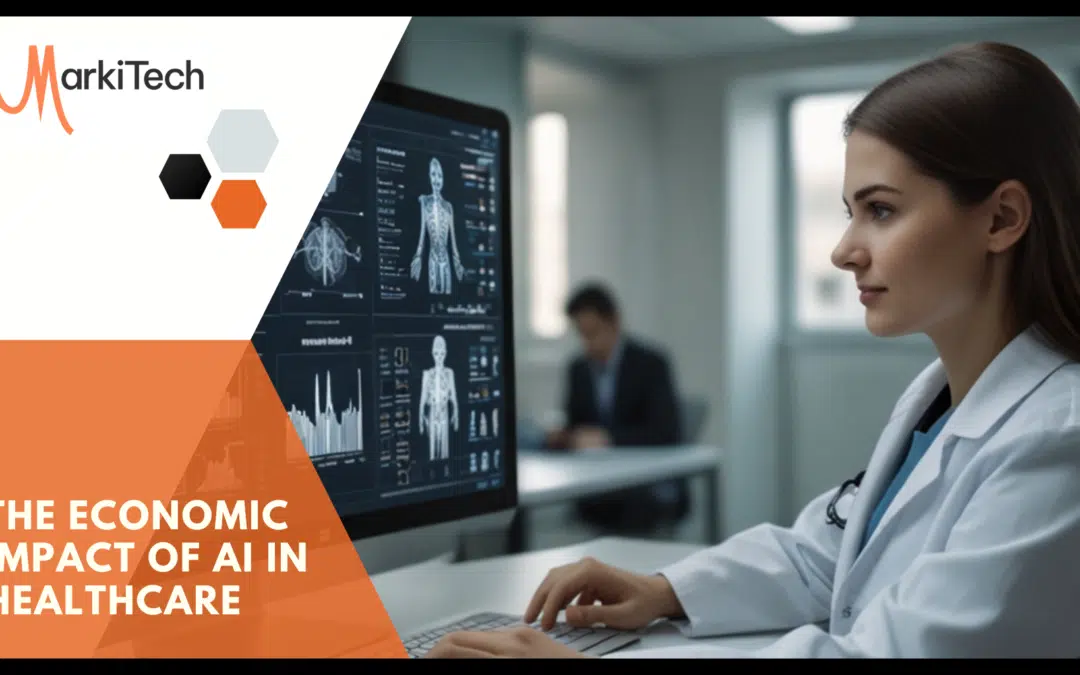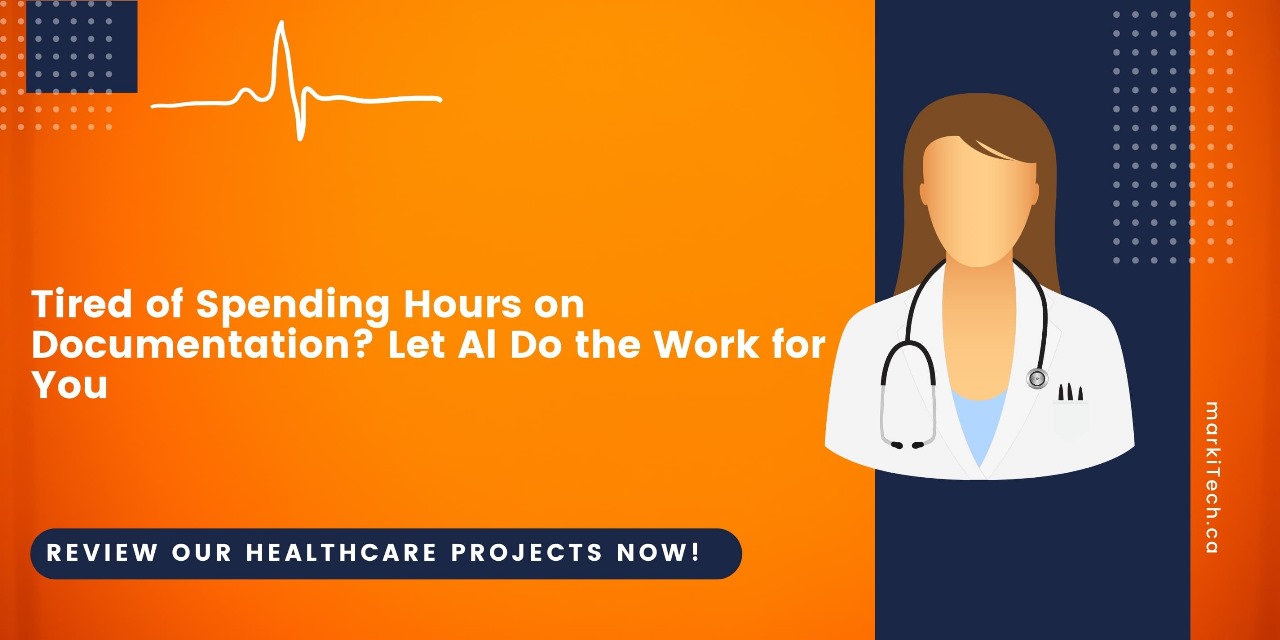Table of Contents
ToggleMedically Reviewed: Dr Hanif Chatur
Image Credit: Canva
Introduction
AI is transforming the face of the future for healthcare, but perhaps as surprising an impact AI has on healthcare is in terms of its sheer economic impact of ai in healthcare. Whether for cutting operational cost or better accuracy in diagnosis, AI is redefining every critical parameter of healthcare delivery. From workload analysis and streamlining it for hospitals and clinics to enhanced patient care and expense control, hospitals and clinics can thus enhance their quotient of efficiency in health care. The undoubtedly evident savings include reduced treatment costs, better patient outcomes, and better resource management.
Economic Effect of AI on Healthcare: The impact of AI in health care is not about technology but more of shifting the service of health care into a more accessible, more affordable, and more effective system for everyone.
Understand how the economics of AI
It is something important to understand how the economics of AI, if developed within this healthcare sector, can take place and offer huge potential for cost reduction along with the efficiency of medicine.
The economic consequences of AI in healthcare are:
- It helps reduce the costs of operations for health care providers.
- Increase patient outcomes by possibly detecting and curing diseases in their incipient form.
- Implement automated tasks to minimize repetition.
- Facilitate individualized treatment, thereby reducing errors and management of patients.
How AI Is Driving Cost Efficiency in Healthcare
The biggest contributions of AI in healthcare are in cost-cutting. Traditional healthcare models involve, lengthy processes, are highly operationally expensive, and are plagued by inefficiencies caused by human error. The challenge facing them was taken into consideration by AI as follows:
- Automating Administrative Processes
Much of the time and resources go into administrative work-from scheduling appointments to managing patient records and billing. AI can streamline such processes so that health providers can focus more on the aspect that requires their direct care. Reducing the time and labor required for administrative tasks means that operational costs take a huge hit, thereby contributing to the economic impact of AI in health care. - Enhancing Diagnosis and Treatment Accuracy
AI can analyze huge data volumes for which some patterns are not identifiable through the naked eye. For example, AI-based diagnostic tools may be able to identify early warning signals of diseases, thus enabling early treatment. Early detection is actually less invasive in most cases where fewer complications and earlier discharges happen with what contributes to reducing health care costs. - Predictive Analytics in Patient Care
AI in the health care sector can predict possible consequences facing a patient, establish some potential risks, and even provide some preventive measures through predictive analytics. This helps AI reduce the need for expensive emergency interventions because it will predict complications or present the patients themselves with the risk. This aspect of AI economic impact in health care is pretty crucial for both cost efficiency and improvement in patient care. - Optimizing Resource Management
Through predictive volume of patients, management of the schedule of staff personnel, and tracking usage of equipment, AI can optimize resource allocation in hospitals and clinics. Optimization ensures that the right resources are available to the healthcare providers without overstaffing or leaving any equipment underutilized, which can lead to better cost management.
Economic Benefits for Healthcare Providers
The economic impact of AI in healthcare is not limited to cost reductions. AI also brings new revenue opportunities and productivity improvements for healthcare providers.
- Improved Efficiency and Productivity
This helps healthcare workers focus on more complex and high-priority tasks while AI performs such mundane activities as documentation and, therefore, enhances data entry. As a result, the medical staff can treat more patients in a short period of time. Generally, with this, healthcare institutions increase their profit as they house more patients without decreasing quality.
- Reducing Human Error
The healthcare providers also face significant costs in terms of medical errors, especially misdiagnosis and inappropriate treatments. The error-reducing nature of AI systems ensures accurate analysis and correct decision-making. With the reduction in the possibility of costly mistakes, the economic impact of AI in healthcare involves not only financial savings but also increases in trust and satisfaction among patients.
- New Revenue Streams through AI Technologies
The very innovative aspect of AI is that it brings in new revenues for healthcare providers through services such as telemedicine, remote monitoring, and AI-powered diagnostic tools. They bring in additional services to which the patient would pay for, thereby improving the financial health of a hospital or clinic.
The Economic Impact of AI in Healthcare for Patients
While healthcare providers experience direct economic benefits from AI, patients also see positive economic effects. Here’s how:
- Lower Treatment Costs
Healthcare professionals’ diagnostic capabilities become better due to AI, meaning a disease is diagnosed at an earlier stage; this, in turn, means that there is proper treatment, and the right methods are followed. Patients are subjected to fewer costly treatments and shorter hospitalization periods when being treated by healthcare professionals with AI. AI reduces the direct payments such as hospital fees and long periods of admittance in hospitals.
- Personalized Medicine
AI enables individualized treatments due to its ability to analyze patient-specific data, a combination of genetic and lifestyle factors. Personalized care is usually more effective at times and may even use fewer interventions and consequently reduces the total healthcare costs associated with any patient. The personalized route also contributes to the economic impact of AI in health care as it delivers better results at a reduced cost.
- Accessibility to Healthcare
AI-driven technologies, such as telemedicine, are making it more accessible for a larger number of people to have healthcare, including patients from remote and underserved areas. AI reduces indirect costs associated with healthcare through the reduction in travel and away-from-work time through virtual consultation and monitoring.
Challenges and Considerations
Despite the numerous benefits, there are challenges to fully realizing the economic impact of AI in healthcare:
- Initial Investment Costs: In healthcare, introducing AI technologies incurs tremendous initial investment costs in terms of software, hardware, and training. Such costs may be too high for smaller healthcare providers.
- Data Privacy and Security: Such AI systems might handle sensitive patient data, and there is a sense of concern over data privacy and security. Health providers need to ensure that their AI system does not contravene the HIPAA regulation while keeping it safe from costly breach.
- Integration: The AI solution needs to integrate any available health care infrastructure so as not to end up becoming a source of inefficiency and thus negating any economic benefits.
However, these challenges can be overcome through careful planning, regulatory compliance, and the expertise of companies like MarkiTech, which specializes in providing seamless AI integration solutions for healthcare providers.
Future Economic Impact of AI in Healthcare
The future of health care is fairly closely related to AI, and its economic impact will probably keep on surging as the technological advancements are still deepening day by day. Some such areas with more benefits include:
- AI-based Drug Development: AI drives the discovery of drugs by analyzing biological data and predicting success in new treatments. This saves time and expenses that are needed in bringing a new drug to market.
- Wearable Health Devices: AI-based wearables can monitor and track patients’ vital signs continually and alert in due time for timely intervention. This will reduce emergency visits and hospitalization, leading to saving on health-care costs.
- AI in Medical Research: AI analyzes large datasets to discern trends and insights that drive the work of medical research forward. Findings will thus lead to more efficient treatments and better delivery models in healthcare.
Conclusion
The Economic Impact of AI in Healthcare is without debate. From cost cuts and efficiency to more patient-centered care, the transformation will be real for health care. More healthcare providers and patients will reap benefits of adopting these AI technologies. As problems are identified, the eventual economic benefits far outweigh the costs of initial investment.
Any healthcare provider interested in harnessing AI for the best results must select the best partners. CliniScripts offers tailored solutions that unleash AI capabilities by streamlining workflows, enhanced clinical outcomes, and better care at a lower cost to patients. Healthcare providers embracing AI can be ahead of the curve while bringing better and cheaper care to the patients.
# AI in Healthcare
# Healthcare
# economic impact of AI
# AI in Medical





